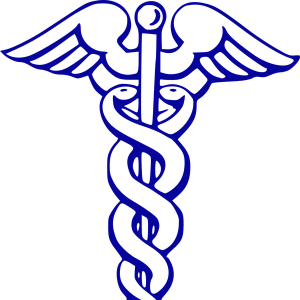
Residents of the OR Tambo District in the Eastern Cape were mostly in favour of the proposed National Health Insurance (NHI) Bill at a public hearing in Mthatha, but raised questions on how it will solve the Eastern Cape's ailing health system, especially in rural areas.
Parliament’s Portfolio Committee on Health held the district’s public hearings at the Mthatha Town Hall on Sunday. The committee wrapped up the Eastern Cape public hearings in King William’s Town on Monday. The Eastern Cape is the fifth province where the public have had the opportunity to have their say on the NHI Bill.
The right to life
Many villagers of the mostly rural district used the public hearings as an opportunity to vent their frustrations and to call on government to speed up NHI to assist the ailing provincial health system.
"We brought this Bill here to this deepest rural district in order for us to hear your views,” said Dhlomo. “We know that the right to health and the right to life supersede all other human rights. This is the continuation of something started by Nelson Mandela in 1994 when he said 'quality health care is everybody's right'."
Yoliswa Ntwana, a resident from Nyandeni, raised concerns about the urgent need for NHI, suggesting that it should be introduced immediately because the health care system is appalling.
"I feel like the public health system has let us down in rural areas. Healthcare facilities are few and far from people and those who are lucky enough to have clinics in their villages have ageing infrastructure and shortage of staff and medication,” she said.
"We travel through rivers and cross dangerous bushy areas where we are vulnerable to thugs who sometimes rape and mug us. So, government needs to tackle this ageing infrastructure in order for us to receive good health services with the NHI. Currently NHI is questionable if is going to be implemented with this poor infrastructure,” Ntwana warned.Nehawu Regional Chairperson Nomamfengu Siyo-Sokutu suggested that existing health infrastructure be fixed first.
Light at the end of the tunnel
“Infrastructural, operational factors and shortage of staff should be fixed before the NHI Bill is passed into law. The current system is failing our people who have to stand in long queues because in some clinics there is only one nurse available to attend to them,” she said.
"As far as I know NHI supposedly began in 2012. We are happy to see that there is light at the end of the tunnel.” She said the OR Tambo district is one of the districts chosen as part of pilot sites for the roll out of the National Health Insurance.
"But we want it to be quick so it can be compulsory for all South Africans,” Siyo-Sokutu said. “We also want to warn this committee against any plans of outsourcing this project that can lead to corruption just like what we are seeing in state-owned enterprises. Please avoid outsourcing this, then you have our backing."
Dr Mzulungile Nodikida, who made a presentation on behalf of the South African Medical Association (SAMA), said SAMA in the Eastern Cape is in favour of NHI because “we understand that the concept of universal health coverage is the global imperative and it forms a fundamental part of the sustainable development goals”.
"Rugby as a game cannot begin to unite us as a nation. If there is something that should unite all of us, it is on the question of healthcare,” he said. “The price of health care for both the poor and the rich in this country is unsustainable."
Queuing all day
Nodikida said he was trained as a doctor in Cuba. “ It is a developing country, but they guaranteed health care to all their people. I think South Africa also needs to prioritise health care especially primary health care because it is where it matters most. Elderly people in rural areas are queuing all day from sunrise until sunset waiting for assistance or medication because there is a shortage of nurses in our clinics,” said Nodikida.
Dhlomo welcomed the input. "It is interesting that members of society are able to comment on the NHI Bill and not shy away from speaking about the challenges in the healthcare sector like ageing infrastructure, shortage of staff, shortage of medication, shortage of ambulances and access roads to the clinics and hospitals," he said
"Some of them are saying we don’t have to wait for NHI to kick in, but the Department of Health needs to first attend to and improve the current health care system and infrastructure before the NHI Bill is passed into law," he said.
Dhlomo also shut down the rumours that analysis of comments on the Bill will be outsourced to a private company. "I'm not aware of any outsourcing. What I know is that MPs will sit down and consider the recommendations then submit our report to the Speaker so it can go to the House and be passed.”
After the Bill has been processed by both Houses of Parliament it will go to the President to be signed into law. Then by 2026 it will be fully implemented," said Dhlomo.
The OR Tambo region hearing was attended by local councillors, doctors, religious groups, health workers, regular community members and representatives from civil society.
* This article was produced by Spotlight – health journalism in the public interest
Image credit: iStock




 Publications
Publications
 Partners
Partners














